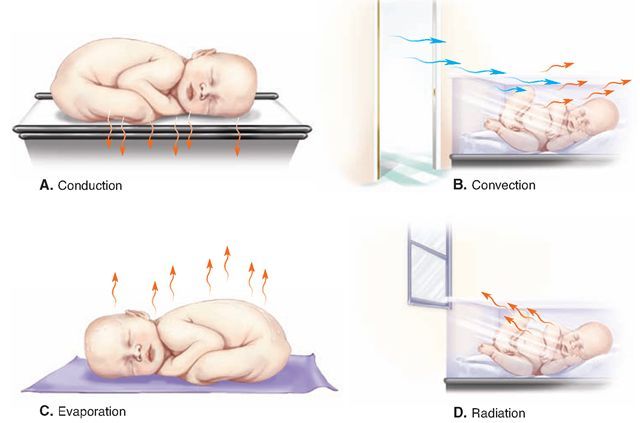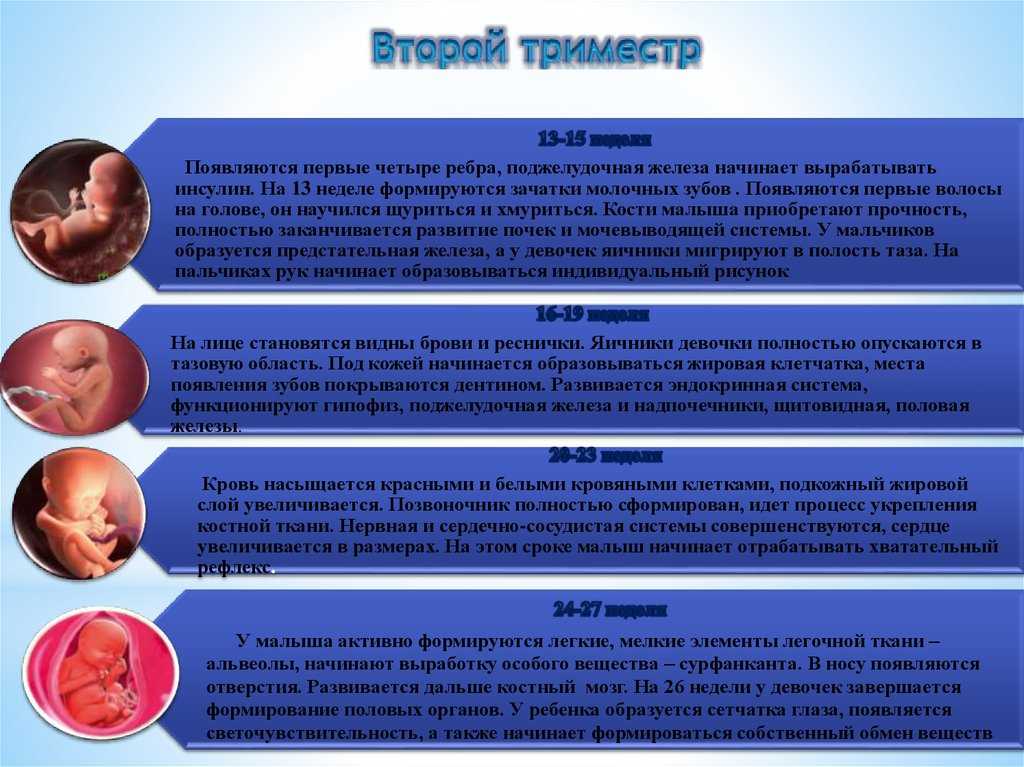How to get respite care for my child
Finding Respite Care (for Parents)
If you’re raising a child with special health care needs, you might find that "me time" is more fantasy than reality. Sure, you'd love some time to yourself, or one-on-one time with a spouse, partner, friend, or another child. But how can you find that perfect person to care for your child? And even then, can you trust someone else to provide just what your child needs?
Luckily, finding respite care — a well-deserved break from caregiving — with a skilled and caring person that you trust might be easier than you think.
What's Available?The many types of respite care include:
- a caregiver who comes to your home for a few hours daily, weekly, or as needed
- drop-off day programs (at a school, health care facility, or faith-based or volunteer agency) that provide activities
- daily or weekly respite programs offered by a community-based agency, host family, residential facility, or sleepaway camp
Another option that families enjoy is respite care offered through parent "co-ops. " This is when families take turns watching each other's kids. For example, you can take someone else's child for one day or evening a month, and that person can do the same for you. Support groups for families with your child's condition are a good place to meet other families.
You also might consider asking for help from extended family, friends, or neighbors, and give them the training they need to care for your child.
Where Can I Find Local Caregivers?Special health care needs usually require care beyond what the average babysitter can offer. Here are some ways to find experienced caregivers:
- Ask your care team or hospital social worker about programs in your area.
- Contact advocacy groups in your area, like your state’s developmental disabilities agency (find a local chapter).Tell them what kind of care you need and get a list of providers that may include visiting nurses, childcare centers, and sleepaway camps.

These groups offer help and information, and may have chapters in your area:
- ARCH National Respite Network
- United Cerebral Palsy
- Easter Seals
- Family Voices
- The Arc
How Should I Interview Caregivers?
Once you've narrowed your search and decided on a person or program, do a telephone interview. Ask caregivers if they've had background and reference checks. Make a list of all your child's needs, from toileting to communicating, and make sure the caregiver has the skills to handle them. Ask to meet in person, and watch how the caregiver interacts with your child.
Call the applicant's references and ask about the caregiver. Were there things the caregiver did that they didn't like? Keep interviewing and asking questions until you find someone you feel truly comfortable with.
How Can I Pay for Respite Care?
Respite care can be costly, but there are programs that can help. They include:
- Medicaid waiver funding.
 Most children with a disability qualify for home and community-based Medicaid waivers that cover the cost of respite care. Waivers either pay for the cost of care or reimburse you for out-of-pocket costs. Contact your local department of developmental disabilities to see if your child qualifies for Medicaid waiver funding. To learn about programs in your state, go to Kids’ Waivers.
Most children with a disability qualify for home and community-based Medicaid waivers that cover the cost of respite care. Waivers either pay for the cost of care or reimburse you for out-of-pocket costs. Contact your local department of developmental disabilities to see if your child qualifies for Medicaid waiver funding. To learn about programs in your state, go to Kids’ Waivers. - Lifespan financial aid. Kids who do not qualify for a Medicaid waiver may be eligible for financial assistance for respite care through a State Lifespan Respite Grant, if it’s available in their state.
- Military childcare benefits. Some members of the military qualify for respite care as part of the childcare benefit. For details, visit Child Care Aware of America or TRICARE, which provides health benefits for active-duty service members.
For help figuring out which respite services your child may be eligible for, talk to your social worker or contact your local Family Voices chapter.
Once you find respite care for your child, you’ll wonder how you ever lived without it. Having an extra set of hands so that you can run errands, go to an appointment, or just take a break works wonders for your mental health. You'll feel better and have more energy to do the things you need to do for your child and family.
Respite Care Programs - Child Welfare Information Gateway
Respite care provides parents and other caregivers with short-term child care services that offer temporary relief, improve family stability, and reduce the risk of abuse or neglect. Respite can be planned or offered during emergencies or times of crisis. Respite may be available to foster, kinship, and adoptive families, as well as birth families in need of support.
Use the following resources to locate community respite services, learn more about respite services for resource families and families at risk of child abuse and neglect or family disruption, and find evaluations of respite programs. Resources include State and local examples.
Resources include State and local examples.
- For families at risk of child abuse and neglect or family disruption
- For resource families
- Evaluation
The ABCs of Respite: A Consumer Guide for Family Caregivers (PDF - 964 KB)
Arch National Respite Network and Resource Center (2017)
Provides guidance to family caregivers on assessing personal need for respite and accessing available services, including potential funding sources.
Annotated Bibliography of Respite and Crisis Care Studies (PDF - 1,144 KB)
ARCH National Respite Network and Resource Center (5th ed.) (2020)
Summarizes peer-reviewed journal articles published between 2014 and 2020 that provide a baseline understanding of respite research and focus on outcomes attributed to respite. The studies included documented outcomes of respite care for family caregivers, care recipients, families or communities, including cost-benefit studies.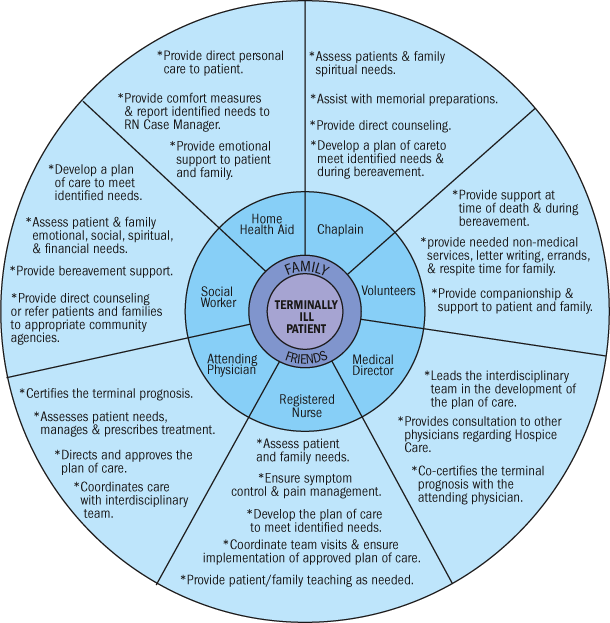
Federal Funding and Support Opportunities for Respite: Building Blocks for Lifespan Respite Systems
Gabor (2016)
ARCH National Respite Network and Resource Center
Provides State Lifespan Respite Care Programs and their partners with information about the funding sources and basic information about each of the Federal programs that provide or could potentially provide respite funding or support.
Providing Respite: Supporting People and Families Across the Lifespan (PDF - 3,072 KB)
Rutgers University, Robert Wood Johnson Medical School (2014)
Provides information on respite programs, how to become a respite provider, and family caregiving for children or adults across the lifespan.
Respite Care
North American Council on Adoptable Children (2017)
Describes respite care and links to a fact sheet, a step-by-step guide, and a best-practices guide related to respite programs.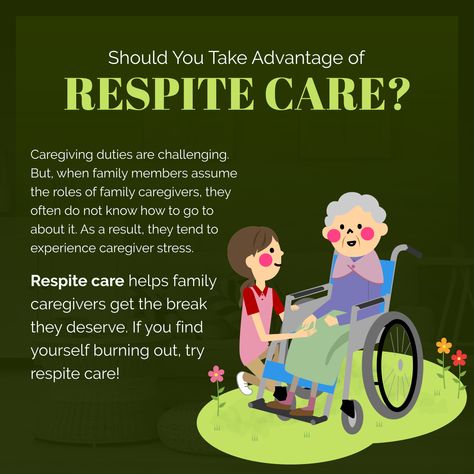
What is Respite Care?
Comfort Keepers (2015)
Explains respite care as a resource for family caregivers and provides information on kinds of respite care, how to find respite care, and how caregivers should care for themselves to prevent burnout.
(Back to Top)
ARCH State Respite Coalitions: A Compendium of Fact Sheets (PDF - 1,956 KB)
ARCH National Respite Network and Resource Center (2017)
Provides State-specific factsheets to educate prospective members, family caregivers, and policymakers about the Respite Coalition resources they have in their own States.
Respite
Tennessee Department of Mental Health & Substance Abuse Services
Explains Planned Respite, a program in Tennessee that helps caregivers of children with serious emotional disturbance learn the skills necessary for getting respite care. The program teaches caregivers how to find respite care and how to train those providers to successfully care for their children.
Respite Care
Connecticut State Department of Children and Families
Presents an overview of respite care services provided to caregivers of children in Connecticut whose emotional and/or behavioral special needs require constant attention from their caregivers. The program provides respite care services that are community-based and help these children make the transition to adulthood.
Respite Services
Shiloh House (2018)
Offers a nurturing and safe environment for youth in foster care to serve as respite for Colorado families and prevent the disruption of placements for youth who may be at risk of being removed from their families or who are already placed in foster care.
(Back to Top)
One-time allowance for the birth of a child
The applicant has the right to file a complaint against the decisions and (or) actions (inaction) of the authorized body, its officials in the provision of public services (complaint), including in the pre-trial (out of court) procedure in the following cases:
- violation of the application registration deadline;
- violation of the term for the provision of public services;
- requirement from the applicant of documents, information or actions not provided for by the regulatory legal acts of the Russian Federation for the provision of public services;
- refusal to provide a public service, if the grounds for refusal are not provided for by federal laws and other regulatory legal acts of the Russian Federation adopted in accordance with them;
- refusal to accept documents, the submission of which is provided for by regulatory legal acts of the Russian Federation for the provision of public services;
- requesting from the applicant, when providing a public service, a fee not provided for by the regulatory legal acts of the Russian Federation;
- refusal of the authorized body, its officials to correct the misprints and errors made by them in the documents issued as a result of the provision of public services or violation of the deadline for such corrections;
- violation of the term or procedure for issuing documents based on the results of the provision of public services;
- suspension of the provision of public services, if the grounds for suspension are not provided for by federal laws and other regulatory legal acts of the Russian Federation adopted in accordance with them, laws and other regulatory legal acts of the constituent entities of the Russian Federation, municipal legal acts.

Subject of complaint
The subject of the complaint is a violation of the rights and legitimate interests of the applicant, unlawful decisions and (or) actions (inaction) of the authorized body, its officials in the provision of public services, violation of the provisions of the administrative regulations and other regulatory legal acts establishing requirements for the provision of public services.
Ways to make a complaint
A citizen has the right to file a complaint in writing on paper by mail or in person to any PFR Client Service, as well as in electronic form:
- on the official website pfr.gov.ru;
- portal vashkontrol.ru;
- portal do.gosuslugi.ru.
The reason for the appeal may be dissatisfaction with the quality of the provision of public services by the PFR, violation of the terms for the provision of services, violation of the terms for registering a request for a service, refusal to correct errors or typos, refusal to provide a public service, refusal to accept documents, demand for an additional fee.
Procedure for filing and handling a complaint
The complaint must contain:
- name of the authorized body, last name, first name, patronymic (if any) of its officials providing the public service and (or) their leaders, decisions and actions (inaction) of which are being appealed;
- last name, first name, patronymic (if any) of the applicant, information about the place of residence, as well as contact phone number (numbers), e-mail address (s) (if any) and postal address to which the answer should be sent to the applicant;
- information about the appealed decisions and (or) actions (inaction) of the authorized body, an official of the authorized body, its head;
- arguments on the basis of which the applicant does not agree with the decisions and (or) actions (inaction) of the authorized body, an official of the authorized body, its head.
The applicant shall submit documents (if any) confirming his arguments or copies thereof.
When filing a complaint in electronic form, the documents specified in paragraph 106 of the administrative regulations may be submitted in the form of an electronic document signed with an electronic signature, the form of which is provided for by the legislation of the Russian Federation. In this case, an identity document of the applicant is not required.
In the authorized body, officials authorized to consider complaints are determined, who ensure:
- receiving and handling complaints;
- sending complaints to the body authorized to consider them.
Complaints against decisions and (or) actions (inaction) of an official of the authorized body are considered by the head of the authorized body or an official of the authorized body authorized to consider complaints. Complaints against decisions and (or) actions (inaction) of the head of the authorized body are considered by an official of the executive authority of the constituent entity of the Russian Federation authorized to consider complaints.
If the complaint is filed by the applicant with a body whose competence does not include making a decision on the complaint, within 3 working days from the date of its registration, the said body sends the complaint to the body authorized to consider it and informs the complainant in writing about the redirection of the complaint.
The authorized body ensures:
- equipment for receiving complaints;
- informing applicants about the procedure for appealing against decisions and (or) actions (inaction) of the authorized body, officials of the authorized body by posting information on information boards in places where public services are provided, on the website of the authorized body, on the Single portal, service portal;
- advising applicants on the procedure for appealing against decisions and (or) actions (inaction) of the authorized body, officials of the authorized body at a personal appointment, by phone, using the website of the authorized body;
- conclusion of agreements on interaction between the multifunctional center and the authorized body in terms of the implementation by the multifunctional center of receiving complaints and issuing the results of consideration of complaints to the applicant;
- formation and quarterly submission to the Federal Service for Labor and Employment of reports on received and considered complaints (including the number of satisfied and unsatisfied complaints).

Deadlines for considering a complaint
A complaint received by the authorized body shall be subject to registration no later than the working day following the day of its receipt.
The complaint is subject to consideration within 15 working days from the date of its registration, and in the event of an appeal against the refusal of the authorized body to accept documents from the applicant or to correct misprints and errors, or in the event of an appeal against a violation of the established deadline for such corrections - within 5 working days from the date of its registration.
Result of consideration of the complaint
The result of the consideration of the complaint is the adoption of one of the following decisions:
- satisfy the complaint, including in the form of cancellation of the decision made by the authorized body, correction of typos and errors in documents issued as a result of the provision of public services, return to the applicant of funds, the collection of which is not provided for by the regulatory legal acts of the Russian Federation, regulatory legal acts of the subjects Russian Federation, municipal legal acts;
- refuse to satisfy the complaint.

When satisfying the complaint, the authorized body takes comprehensive measures to eliminate the identified violations, including the issuance of the result of the public service to the applicant no later than 5 working days from the date of the relevant decision, unless otherwise provided by the legislation of the Russian Federation.
A complaint may be denied in the following cases:
- availability of a court decision that has entered into legal force on a complaint about the same subject and on the same grounds;
- filing a complaint by a person whose powers have not been confirmed in the manner prescribed by the legislation of the Russian Federation;
- the presence of a decision on a complaint made earlier in accordance with the requirements of the Rules for filing and considering complaints against decisions and actions (inaction) of federal executive bodies and their officials, federal civil servants, officials of state non-budgetary funds of the Russian Federation, state corporations endowed with in accordance with federal laws, the powers to provide public services in the established field of activity, and their officials, organizations provided for by Part 1.
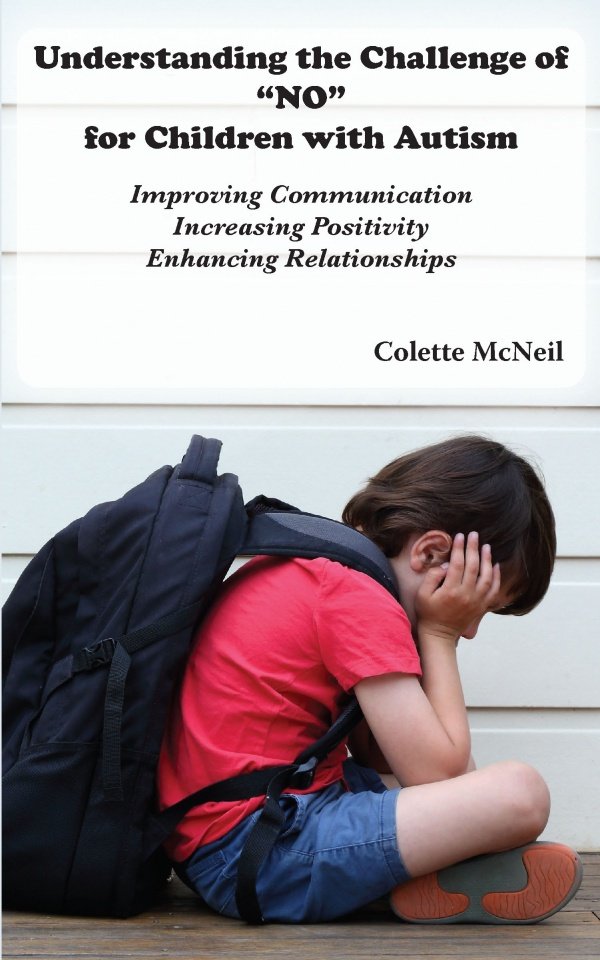 1 of Article 16 of the Federal Law "On the organization of the provision of state and municipal services", and their employees, as well as multifunctional centers for the provision of state and municipal services and their employees, approved by Decree of the Government of the Russian Federation No. 840 dated August 16, 2012, in respect of the same applicant and on the same subject of the complaint.
1 of Article 16 of the Federal Law "On the organization of the provision of state and municipal services", and their employees, as well as multifunctional centers for the provision of state and municipal services and their employees, approved by Decree of the Government of the Russian Federation No. 840 dated August 16, 2012, in respect of the same applicant and on the same subject of the complaint.
A complaint may be left unanswered in the following cases:
- presence in the complaint of obscene or offensive expressions, threats to life, health and property of an official of the authorized body, as well as members of his family;
- the inability to read any part of the text of the complaint, the last name, first name, patronymic (if any) and (or) the postal address of the applicant indicated in the complaint.
In response to the results of the consideration of the complaint, the following shall be indicated:
- name of the public service provider that considered the complaint, position, last name, first name, patronymic (if any) of the official who made the decision on the complaint;
- number, date, place of the decision, including information about the official of the authorized body, the decision and (or) action (omission) of which is being appealed;
- last name, first name, patronymic (if any) of the applicant;
- grounds for making a decision on the complaint;
- decision made on the complaint;
- if the complaint is found to be justified, the terms for eliminating the identified violations, including the term for providing the result of the public service;
- information on the procedure for appealing against the decision taken on the complaint.

In the event that, during or as a result of consideration of a complaint, signs of an administrative offense or crime are established, an official of the authorized body authorized to consider complaints shall send the available materials to the prosecutor's office.
The procedure for informing the applicant about the results of the consideration of the complaint
A reasoned response based on the results of the consideration of the complaint is signed by the official authorized to consider the complaint and sent to the applicant in writing or, at the request of the applicant, in the form of an electronic document signed by the electronic signature of the official authorized to consider the complaint, the type of which is established by the legislation of the Russian Federation, no later than the day following the day the decision is made on the results of the consideration of the complaint.
Procedure for appealing a decision on a complaint
The applicant has the right to appeal the decision taken on the complaint by sending it to the Federal Service for Labor and Employment.
If the applicant is not satisfied with the decision made during the consideration of the complaint or the absence of a decision on it, then he has the right to appeal the decision in accordance with the legislation of the Russian Federation.
The applicant's right to receive information and documents necessary to substantiate and consider the complaint
The applicant has the right to receive comprehensive information and documents necessary to substantiate and consider the complaint.
Ways to inform complainants about the procedure for filing and considering a complaint
Information on the procedure for filing and considering a complaint is posted on information boards in places where public services are provided, on the website of the authorized body, on the Single Portal, Services Portal, and can also be communicated to the applicant orally and (or) in writing.
List of regulatory legal acts regulating the procedure for pre-trial (out-of-court) appeal against decisions and actions (inaction) of the authorized body, as well as its officials
The procedure for pre-trial (out-of-court) appeals against decisions and actions (inaction) of the body providing the public service, as well as its officials, is regulated by Federal Law No. 210-FZ of July 27, 2010 “On the organization of the provision of state and municipal services” and the Decree of the Government of the Russian Federation of August 16 .2012 No. 840 “On the procedure for filing and considering complaints against decisions and actions (inaction) of federal executive bodies and their officials, federal civil servants, officials of state non-budgetary funds of the Russian Federation, state corporations vested in accordance with federal laws with powers to provision of public services in the established field of activity, and their officials, organizations provided for by Part 1.1 of Article 16 of the Federal Law "On the organization of the provision of state and municipal services", and their employees, as well as multifunctional centers for the provision of I am state and municipal services and their employees”.
210-FZ of July 27, 2010 “On the organization of the provision of state and municipal services” and the Decree of the Government of the Russian Federation of August 16 .2012 No. 840 “On the procedure for filing and considering complaints against decisions and actions (inaction) of federal executive bodies and their officials, federal civil servants, officials of state non-budgetary funds of the Russian Federation, state corporations vested in accordance with federal laws with powers to provision of public services in the established field of activity, and their officials, organizations provided for by Part 1.1 of Article 16 of the Federal Law "On the organization of the provision of state and municipal services", and their employees, as well as multifunctional centers for the provision of I am state and municipal services and their employees”.
German maternity allowance Elterngeld
Parental allowance for the first year of a child's life in Germany. The amount of payments, support options and the order of registration.
In Germany, parental money Elterngeld is paid if the mother or father has left work to take care of the child in the first year of his life. The purpose of the allowance is to allow a working parent to take maternity leave in order to fully or partially devote himself to caring for a child without losing his livelihood. Financial support helps to maintain the financial well-being of the family.
Elterngeld variants
The right to a minimum parental allowance of 300€ is also available to residents of Germany who did not receive income before the birth of the child, such as students. You do not need to interrupt your studies to receive benefits.
Parental allowance is received from the birth of a child . The money is paid monthly.
There are three ways to get support:
- Basic - Basiselterngeld.
- Extended - ElterngeldPlus.
- Partner bonus - Partnerschaftsbonus.
These options can be combined. The amount of benefits and the duration of payments depend on the option chosen and personal life situation.
The amount of benefits and the duration of payments depend on the option chosen and personal life situation.
Terms of payment of parental money
You can receive basic parental allowance in the first year of a child's life . If the mother and father both apply for basic benefits and one of them works, the payment is extended up to 14 months. These 2 additional payments are called partner bonus .
Single parents in Germany receive a partner supplement "for free". If the parents are divorced, at least 12 months always go to the one with whom the newborn lives. In other words, mothers.
It is allowed to receive the basic allowance together, one after the other or alternately. The father and mother decide for themselves who and when to take payments.
The extended option is paid twice as long as the basic one, but the amount is half as much. The sum in the end is the same, but is divided not by 12-14, but by 24-28.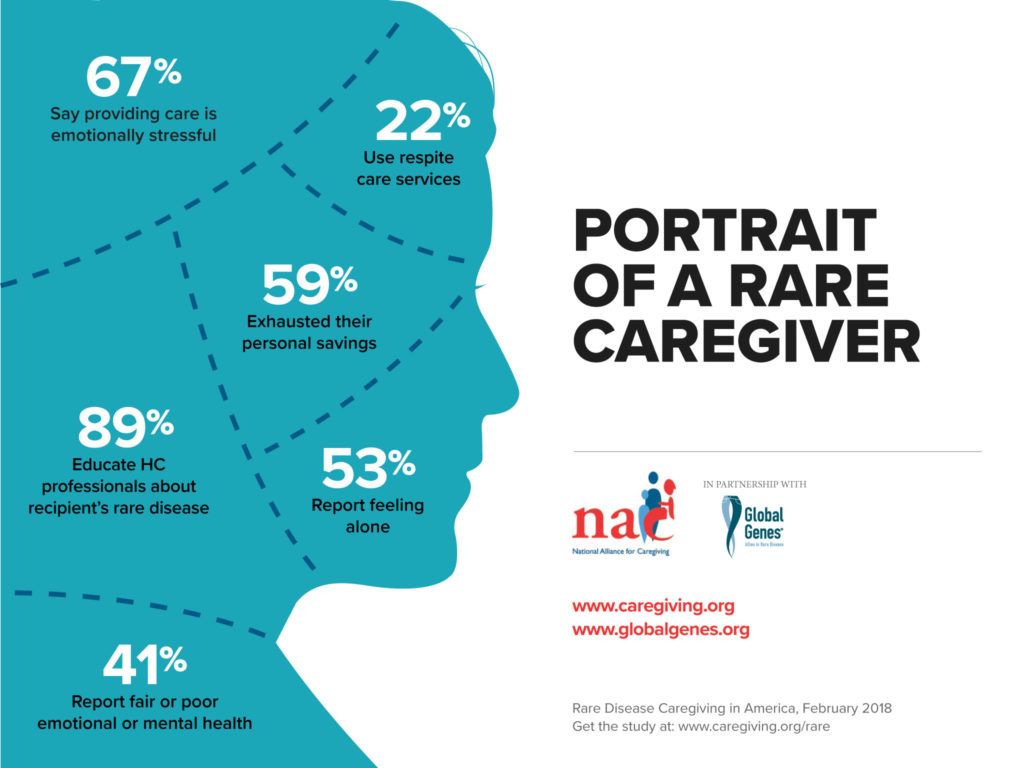
The duration of the partner bonus with ElterngeldPlus is also doubled.
The following restrictions exist:
- Only the first 14 months of a child's life receive basic money.
- After that, only ElterngeldPlus is allowed.
- Benefits cannot be interrupted after the main period. If one year and 2 months after the birth, neither of the parents received money, the right to benefits is lost, even if not fully paid.
- The time the child's mother receives the Mutterschaftsgeld maternity allowance is counted as the months she receives the basic parental allowance. It doesn't matter if the mother applied or not. During this period, she cannot receive ElterngeldPlus or affiliate bonus. But the father can choose which version of the parental allowance he wants to receive.
Example. The mother receives basic support for the first 4 months of a child's life, the father for 5 and 6 months. From 7 to 14 months of life, both receive ElterngeldPlus.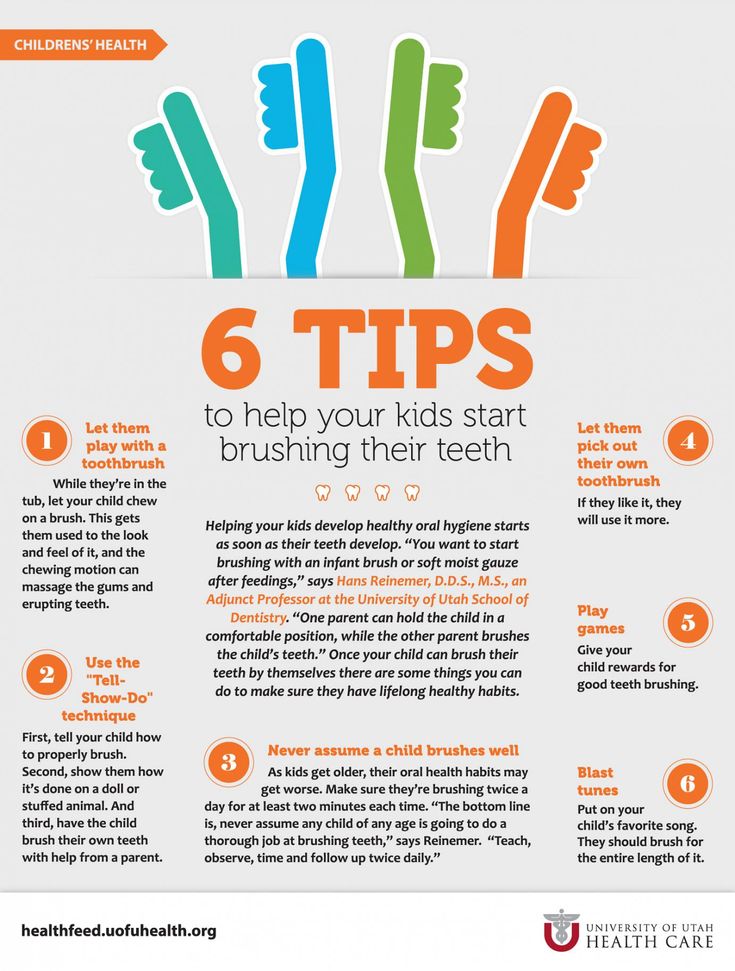 Thus, the parents used up half a year of Basiselterngeld and 16 months of ElterngeldPlus, which in total corresponds to 14 Basiselterngeld fees.
Thus, the parents used up half a year of Basiselterngeld and 16 months of ElterngeldPlus, which in total corresponds to 14 Basiselterngeld fees.
Parental benefit in Germany
The amount of the child care allowance in Germany depends on the income of the parent taking maternity leave and is 300-1800€ monthly .
- Unemployed Germans or those earning the minimum are satisfied with 300€. Recipients of the ALG II receive a reduction in German unemployment benefits when applying for Elterngeld.
- If the income is less than 1000€, the percentage is increased by 67% in increments of 0.1% for every 2€ decrease from 1000€. 998€ give 67.1%, with 996€ - 67.2%, and so on up to 100% with 340€.
- If the earnings are 1200€ up to 1000€, 67% is paid.
- From 1240€ to 1200€ the interest increases gradually from 65% to 67% according to the rule of 0.1% for 2€.
- Between €1240 and €2770 the rate is unchanged - 65%.
- Salary above 2770€ does not add to the maximum amount of 1800€.

Calculating the amount of parental money, taking into account the nuances and dividing it into options by months, is not a trivial task. Those who know German use the counter on the state portal Familienprotal. Not to say that the counter is simple, but at least a calculator is not required.
In parallel and independently of the Elterngeld, the Kindergeld child allowance is also paid in Germany.
Elterngeld for entrepreneurs
Consideration should be given to the planning of maternity leave in the case of private entrepreneurship.
If a child is born at the beginning of a career, when a year of work has not passed, the amount that is earned before childbirth is taken into account by default. If the parent worked for six months, the earnings during this period will be divided by 12 and they will pay 65-67% of the amount received.
The second important point: only the net profit of the entrepreneur is taken into account - income minus expenses.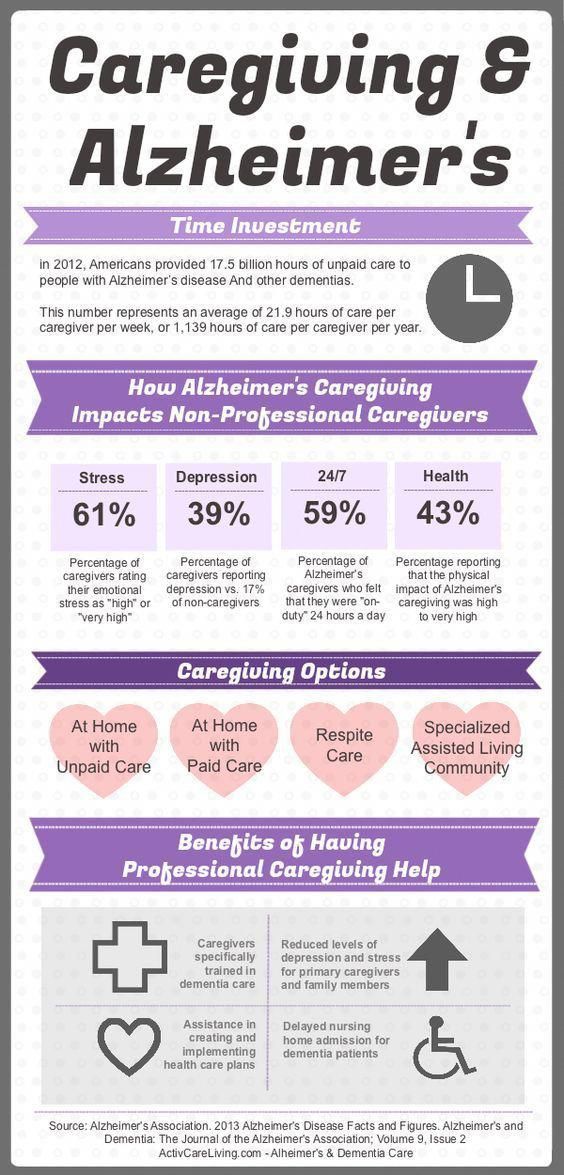
Geschwisterbonus - bonus for large families
If the newborn in the family already has a sibling, you can apply for the Geschwisterbonus. The allowance is increased by 10%, but by a minimum of €75 for the basic allowance or €37.5 for the extended allowance.
The bonus is due if the family lives in addition to the baby:
- one child under 3;
- or two children under 6 years of age;
- or a disabled child under 14.
Geschwisterbonus parents will receive the last time of the month when the second child reaches the age limit indicated above.
Twins in the context of the bonus are treated as one child.
Application for benefits
The parent is obliged to submit an application to the Elterngeldstelle himself. In many federal states, you can apply online.
It is possible to submit the questionnaire only after the birth of the child. It is better to do this during the first three months of a newborn's life, because the benefit is retroactively paid a maximum of three times.
The application is accompanied by a birth certificate and a statement of income for the last year before birth. You can make changes to the application at any time. But there are limitations:
- You cannot change data submitted earlier than three months ago.
- No changes are possible after the end of the benefit period.
- Changes during the period when the benefit has already been paid are only possible in special cases. For example, in the event of death or serious illness of the other parent.
Any changes are possible during the period for which benefits have not yet been paid.
If the parent believes that the amount of the benefit has been calculated incorrectly, he must submit a written objection to the Elterngeldstelle.
Elterngeld and health insurance contributions
Check with your health insurance company before applying. In Germany, there is an incident where the recipient of the allowance is forced to pay contributions while receiving parental money.
If the employee is insured with private health insurance, he continues to pay contributions and nothing changes.
When an employee is insured by the state medical fund, annual income is important.
By law, an employee in Germany has the right to choose whether to remain in state insurance or go private if he earns over a certain limit. In 2020 the transition rate is 62550€. Having remained in the state medical insurance, the employee is automatically transferred to the mode of voluntary payment of contributions. In the context of receiving medical services or calculating the salary, nothing changes for the employee: he also continues to pay a percentage of the salary to the health insurance fund.
But for the design of Elterngeld, this difference is decisive. Those who are in state insurance on a voluntary basis are required to pay contributions themselves. And those who earn less than the limit should not.
In the case of self-payment, the fee is calculated based on the minimum health insurance contribution. For 2020, the minimum is approximately 185€.
For 2020, the minimum is approximately 185€.
Fathers in Germany rarely take maternity leave
Both parents can take alternate holidays, ideally 7 months each. In the event that the father goes on maternity leave, even for a minimum two-month period, payments to the family by the partner bonus are extended. However, only 36% of German men take advantage of the opportunity. Most leave only for a minimum time.
The study found that fathers who take maternity leave spend more time on average with their children and help around the house more often than men who do not take maternity leave. This proves that the law plays a positive role in strengthening the family.
Only every third man in Germany takes parental leave.
But in general, the Germans are still unwilling to take time out for the child and family. There are common excuses for this.
- That they are indispensable workers, and even if they wanted to, the boss would not let them go.



